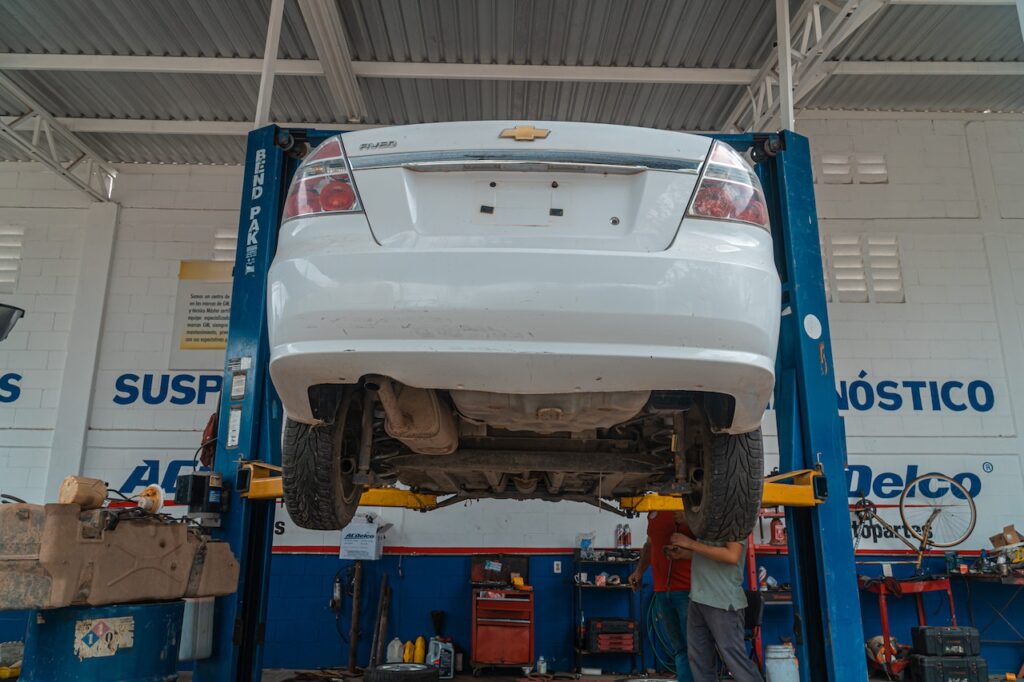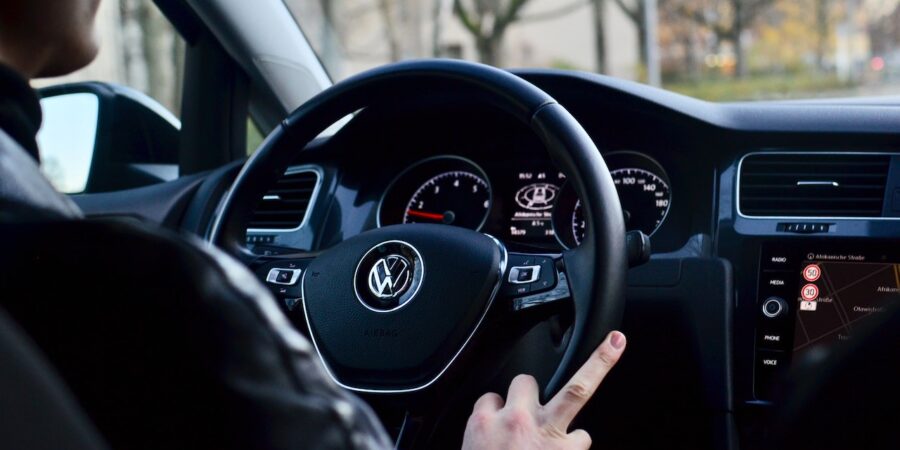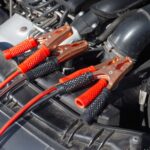Car Squeaks When Turning: Solved!
Why does your car squeak when turning?
A squeaking noise when turning your car typically indicates an issue with the vehicle’s steering system, such as a worn-out or loose belt, damaged suspension components, or low power steering fluid.
When you’re behind the wheel, turning your car smoothly and silently is a sign of a well-maintained vehicle. However, if you’ve noticed an unwelcome high-pitched squeak accompanying your turns, it’s crucial to understand the potential causes and address them promptly.
Car squeaks when turning can be indicative of underlying issues within various components of your vehicle’s turning mechanism, including the power steering system, suspension system, or even drive belts. Ignoring these squeaks can lead to further damage and compromise your safety on the road.
Brief Explanation of Car Squeaks When Turning
The occurrence of car squeaks when making turns arises from friction or wear within critical components responsible for steering and maneuvering. When you turn the steering wheel, it triggers a sequence of events that allow your car to change direction smoothly.
These events involve complex interactions between parts such as the steering column, power steering system, and suspension components. Any malfunction or wear in these parts can cause unintended sounds like squeaking.
The actual sound originates from areas where metal or rubber parts rub against each other without proper lubrication or have worn out over time due to extensive use. The noise may vary in intensity depending on the severity of the issue and can be more noticeable during slow-speed maneuvers or sharp turns.
Importance of Addressing Car Squeaks Promptly
It is essential to prioritize addressing car squeaks when turning for several reasons. Firstly, these noises are not mere annoyances but often early warning signs that something is amiss within your vehicle’s mechanical systems. Ignoring these warning signs can lead to further damage and potentially more expensive repairs down the line.
Secondly, abnormal noises during turns indicate increased friction or stress on certain components like belts or suspension parts. Continued operation without addressing the underlying issue can cause premature wear and tear, jeopardizing the overall performance and longevity of these crucial parts.
Timely intervention can help prevent further damage and extend the lifespan of your vehicle. Moreover, safety is paramount when driving a car.
Any unexpected noise or unusual behavior while turning can be distracting or even disconcerting, affecting your focus on the road. Promptly addressing the squeaks helps restore your confidence in your vehicle’s reliability and ensures a more pleasant driving experience.
Understanding the Basics
Explanation of how cars turn and the components involved
When it comes to understanding why car squeaks occur when turning, it is crucial to comprehend the mechanics behind a vehicle’s steering system. Cars generally rely on a rack-and-pinion steering system, where the rotational motion of the steering wheel gets translated into linear motion by a gear mechanism.
This allows for precise control over the direction of the wheels. As the driver turns the steering wheel, it initiates a series of actions that result in the wheels changing their direction.
Steering Wheel and Column
The steering wheel serves as an interface between the driver and the vehicle’s steering system. It is typically connected to a column that houses various components responsible for transmitting input from the driver to other parts of the car’s turning mechanism. These components include universal joints, which allow for flexible movement between different shafts, and intermediate shafts that transfer motion from one joint to another.
Power Steering System
In modern vehicles, power steering systems assist drivers by reducing effort during turns. These systems can be either hydraulic or electric. Hydraulic power steering relies on fluid pressure generated by a pump driven by either an engine belt or an electric motor.
This pressure assists in turning the wheels when force is applied to the steering wheel. Electric power steering, on the other hand, uses sensors and electronic control units to provide assistance without hydraulic fluids.
Suspension System
The suspension system plays an essential role in ensuring stability, comfort, and handling while driving. It consists of several components working together harmoniously during turns as well.
The primary purpose of suspensions is to absorb bumps while maintaining tire traction on uneven road surfaces. Key components such as struts or shock absorbers help manage vertical motions and prevent excessive bouncing or swaying during turns.
Understanding these fundamentals of a car’s turning mechanism, steering wheel and column, power steering system, and suspension system provides valuable insight into the potential causes of squeaks when turning. Examining these components more closely can help identify specific issues that may be contributing to the unwelcome noise.

Common Causes of Car Squeaks When Turning
Worn-out or Damaged Power Steering Belt
The power steering belt plays a crucial role in the turning mechanism of your car. It connects the engine’s crankshaft to the power steering pump, allowing the transfer of power to assist in turning the wheels smoothly.
Over time, this belt can become worn out or damaged due to regular use and exposure to heat and friction. When it wears down, it may start slipping or generating a squeaking noise during turns.
This can be attributed to its diminished ability to grip the pulleys properly and provide adequate tension for efficient power steering operation. To identify a worn-out or damaged power steering belt, pay close attention to any high-pitched squealing sound when you turn your vehicle’s wheels.
Additionally, if you notice difficulty in maneuvering during turns or an increase in resistance on the steering wheel, these can be indicative signs of a problematic power steering belt. It is crucial not to ignore these symptoms as neglecting them could lead to further damage or even complete failure of your car’s power steering system.
Insufficient Lubrication in Suspension Components
Lubrication plays a vital role in minimizing friction and noise within various suspension components of your vehicle. These parts include bushings, joints, and other movable connections within the suspension system that facilitate smooth movement while turning.
Insufficient lubrication can result from dried-out grease or lack of regular maintenance. Certain suspension components are particularly prone to squeaking when they lack proper lubrication.
These include sway bar bushings, control arm bushings, and strut mounts among others. Lubricating these parts with appropriate greases designed for automotive use can significantly reduce noise during turns.
Worn-out Ball Joints or Control Arm Bushings
Ball joints serve as critical pivot points within the suspension system, allowing the wheels to articulate and move smoothly during turns. Control arm bushings, on the other hand, provide necessary cushioning and stability to these joints. Over time, both ball joints and control arm bushings can wear out due to continuous use, road conditions, or lack of proper maintenance.
When these components become worn-out or damaged, they can produce noticeable squeaks when turning your car. Signs of worn-out ball joints or control arm bushings include clunking noises over bumps or rough road surfaces, excessive vibration in the steering wheel, uneven tire wear, and a loose or imprecise steering feel.
Less Common Causes for Car Squeaks When Turning
Faulty Strut Mounts
Strut mounts are crucial components that connect the suspension struts to the vehicle’s body. They not only provide support but also allow for flexible movement during turns. When strut mounts deteriorate or become faulty due to age, wear and tear, or improper installation, they may start generating squeaking noises.
Indications pointing towards faulty strut mounts include clunking sounds while turning at low speeds, excessive bouncing after going over bumps, increased vibrations felt through the steering wheel when cornering, and uneven tire wear patterns. It is essential to address faulty strut mounts promptly as they can compromise your vehicle’s stability and handling.
Misaligned or Loose Drive Belts
Drive belts transmit power from the engine to various systems in your car such as alternator, water pump, air conditioning compressor – including components related to power steering assistance. Misaligned or loose drive belts can contribute to squeaking noises when turning due to inadequate tension on these components.
Signs suggesting misaligned or loose drive belts include a whining noise that intensifies during turns along with visible signs of belt slippage such as fraying edges or uneven wear. Regular inspection and adjustment of drive belts as per manufacturer recommendations can help prevent these issues.
Damaged CV Joints
Damaged CV (constant velocity) joints are responsible for transferring power from the engine to the wheels while maintaining a constant speed, even during turns. When CV joints become damaged due to wear, lack of lubrication, or exposure to harsh conditions, they can produce squeaking or clicking sounds.
Indications highlighting damaged CV joints include a popping or clunking noise when turning, especially during tight maneuvers, vibrations felt through the steering wheel at higher speeds, and visible damage or leakage from the CV joint boots. If left unaddressed, worn-out CV joints can lead to further damage in the drivetrain system.
Diagnosing the Issue
Visual Inspection
To identify the source of car squeaks when turning, perform a visual inspection of relevant components including power steering belt, suspension parts (ball joints and control arm bushings), strut mounts and drive belts. Look for signs of wear such as cracks, fraying edges, corrosion or excessive play in ball joints. Also check for any fluid leaks near power steering belt or CV joint boots.
Ensure all components are properly lubricated where necessary. During visual inspection also check for loose bolts or fastenings in the areas mentioned above which may cause squeaking noises when turning.
Car Squeaks When Turning
Addressing car squeaks when turning is crucial to ensure a smooth and enjoyable driving experience while maintaining your vehicle’s safety and longevity. By understanding common causes such as worn-out power steering belts, insufficient lubrication in suspension components, and deteriorated ball joints or control arm bushings – along with less common causes like faulty strut mounts, misaligned or loose drive belts,and damaged CV joints – you can better diagnose potential issues affecting your car’s performance.
Remember that timely attention to these problems can prevent more extensive damage and expensive repairs down the line. Regular maintenance, visual inspections, and prompt professional assistance will ensure your car stays in optimum condition, allowing you to enjoy every turn on the road with peace of mind.


